A Teaspoon of Salt...Or Two
1-2 teaspoons a day of salt is the key to moderation and living long, healthy
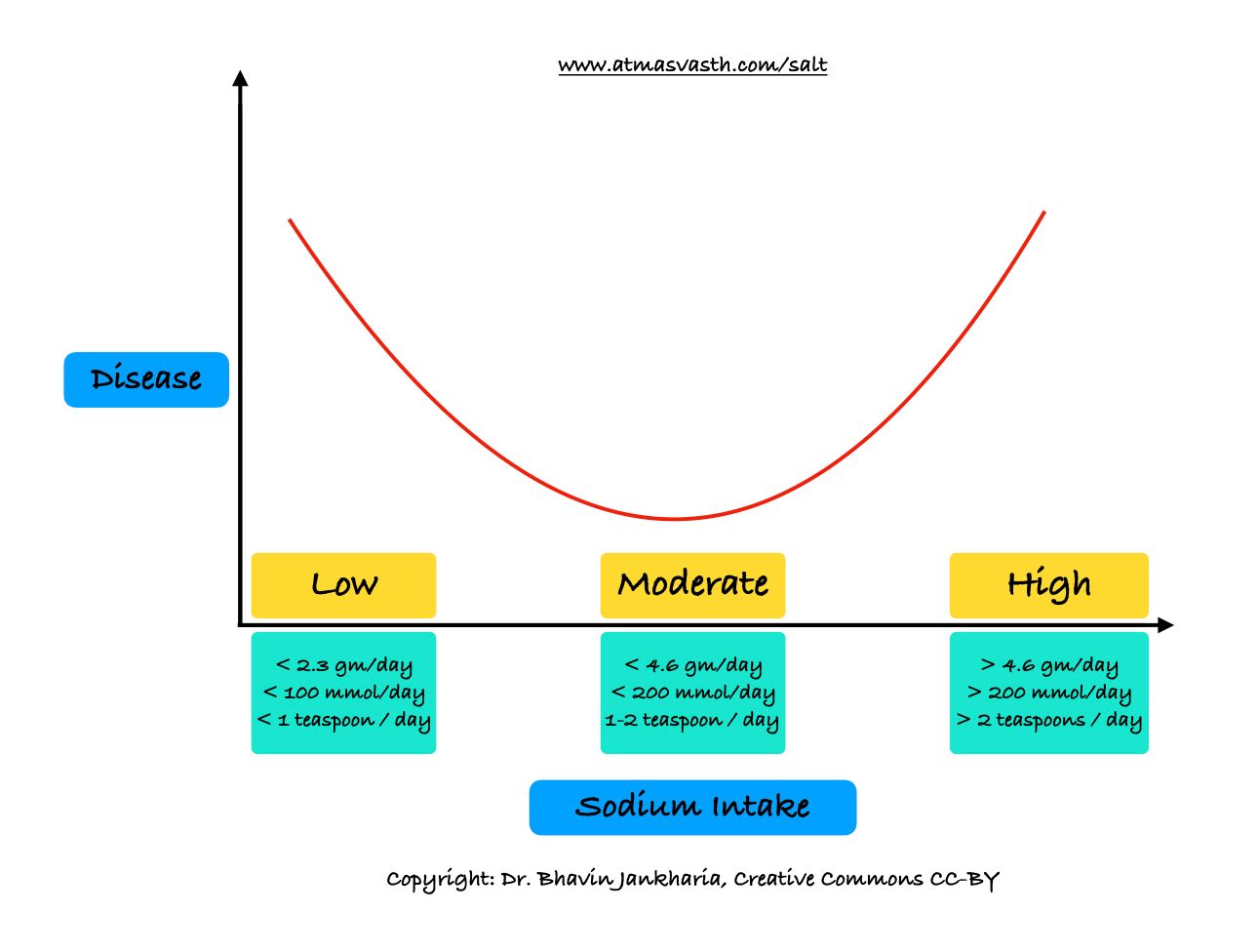
You can listen to the audio/podcast hosted on Soundcloud by clicking the Play button below within the browser itself. You can click here to access directly from your email.
Two recent papers have shown that salt substitution can help reduce blood pressure [1] and improve all-cause mortality [2]. Both studies were performed in rural populations where exposure to salt in processed and ultra-processed foods (UPFs) is low. The population was randomized in both trials. One group received regular salt for daily use while the other had partial substitution with 25-30% of potassium chloride.
The first study by Jie Y [1] and colleagues is from India and showed reduction in blood pressure with the substitute. The second study by Bruce Neal and colleagues is from China and showed lower rates of stroke, major cardiovascular events and deaths in people over 60 years of age in those who used the substitute.
This is a big deal. But the reason these studies had to be done in processed food - naive rural populations, is because it is hard to find places in the world that are not exposed to UPFs, which are created with high amounts salt, sugar and fat.
Salt is intricately woven into the fabric of our lives and it is often tough to separate fact from fiction. Salt has moved civilizations. Mahatma Gandhi’s Dandi salt satyagraha shook up the mighty British Empire. These days, it is the amount of salt that individuals and populations are supposed to consume daily that has become a source of controversy and heightened emotions among doctors and healthcare professionals [3].
Why is salt such a big issue? How much salt do we need daily? Let’s dive into this.
What is salt?
Salt is sodium chloride as we were taught in school, containing 60% sodium and 40% chloride. Most guidelines talk about sodium in gm or mmol and salt separately.
Why is salt or sodium important?
Sodium is needed by the body to maintain the homeostasis of multiple physiologic systems.
Is too much salt dangerous?
Yes. It causes increased blood pressure among other issues and reduces the healthspan and lifespan.
Is too little salt also dangerous?
Yes, it upsets the body’s homeostasis and leads to imbalance and diseases. Hyponatremia, for e.g., is a specific disease that affects the brain among other parts of the body.
What is the amount of salt needed for optimal health?
This is where the controversy arises. The Indian Guidelines from the Ministry of Health and Family Welfare on Hypertension say that the daily salt intake should be less than 6 gm/day with a sodium intake of less than 90 mmol/day. Most International guidelines recommend a sodium intake of less than 2.3 gm/day or less than 100 mmol/day, which works out to less than 1 teaspoon per day of salt. The new European guidelines argue that this is too low and recommend a moderate sodium intake of up to 4.6 gm / day (< 5 gm/day) or < 200 mmol/day or around 1-2 teaspoons of salt per day.
Why does this controversy exist?
Many studies have shown a U- or a J-shaped curve where too low or too high a sodium intake leads to increased risk of disease, with the least risk in people with moderate intake.
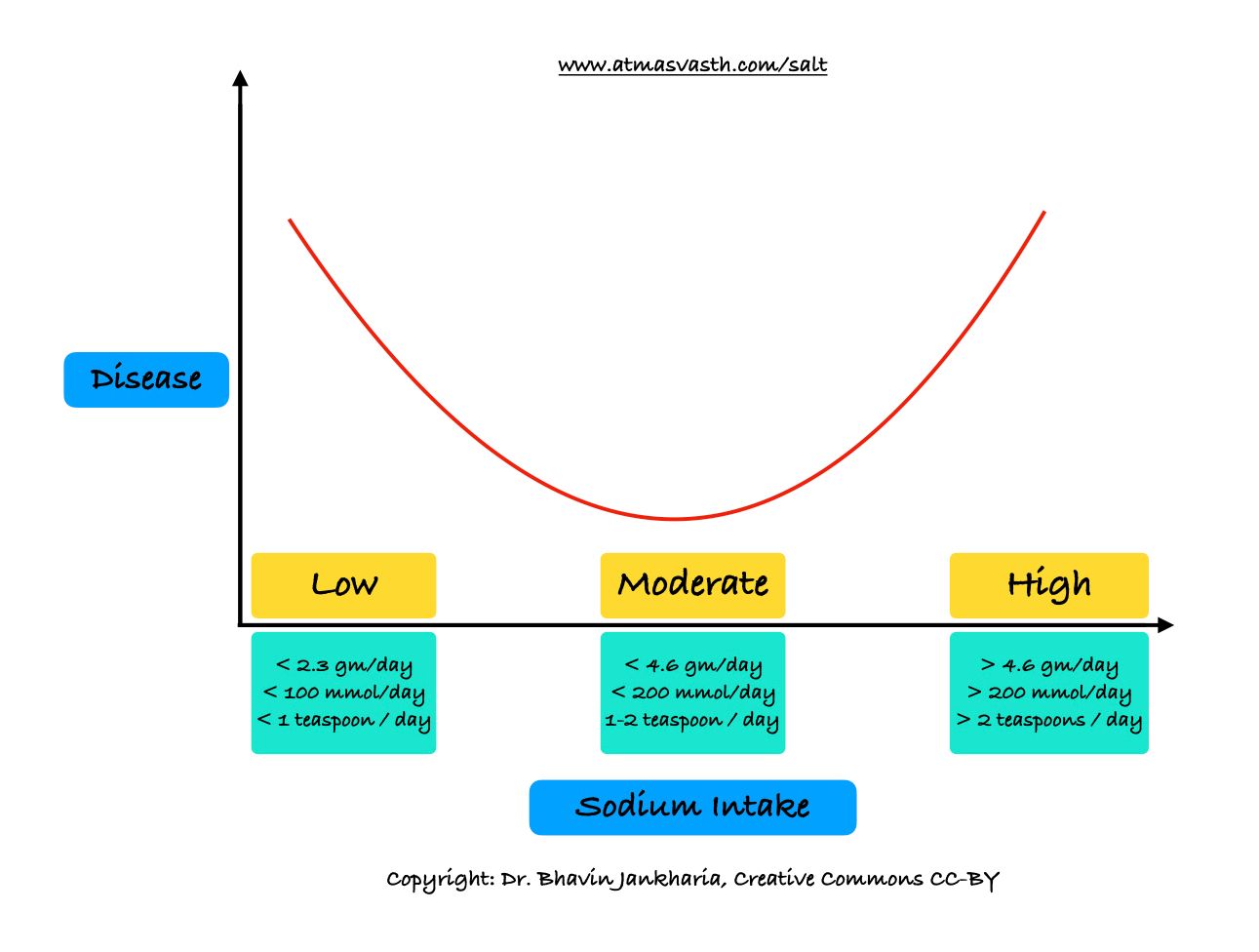
How do we measure our daily salt intake?
How do we exactly? If we don’t eat anything out of a box and only eat fruits and vegetables that we cook on our own and/or have control over the food we eat and the way it is cooked, then and only then would we actually know what our daily salt intake is.
The other way is to measure the urinary sodium excretion, which makes no sense in the real world.
All UPFs contain a lot of salt (along with sugar and other weird substances). Freshly cooked food in restaurants also has a higher intake of salt than we would use at home. Our home cooks (maharaj’s) from Rajasthan also use extra salt to give additional flavor to the food they make and the same is true at weddings.
It is impossible to actually estimate how much salt or sodium is going into our body on a daily basis. It also makes no sense to eat completely bland food and so like with everything else we do, a little moderation is what we should aim for.
Are pink salts, rock salts, etc. healthier?
Seriously? It’s just like the super-rubbish of superfoods. Just because Mr. Anil Kapoor assaults us with rubbish messages of the purity of some pink salt from the Himalayas, does not make that salt any better. All salts are sodium chloride. Period.
So what should you and I do? Moderation is the key. We need to aim at 1-2 teapoons of salt a day…definitely not more than 2 teaspoons. If we consume less UPFs, eat fresh fruits and vegetables, consume home-cooked food and stick to a predominantly plant-based diet, without adding extra table salt (unless the food is really, really bland), you and I should be able to achieve this quite easily. In any case, off-the-shelf salt substitutes are just not as easily available as sugar substitutes.
Last Wednesday's Post
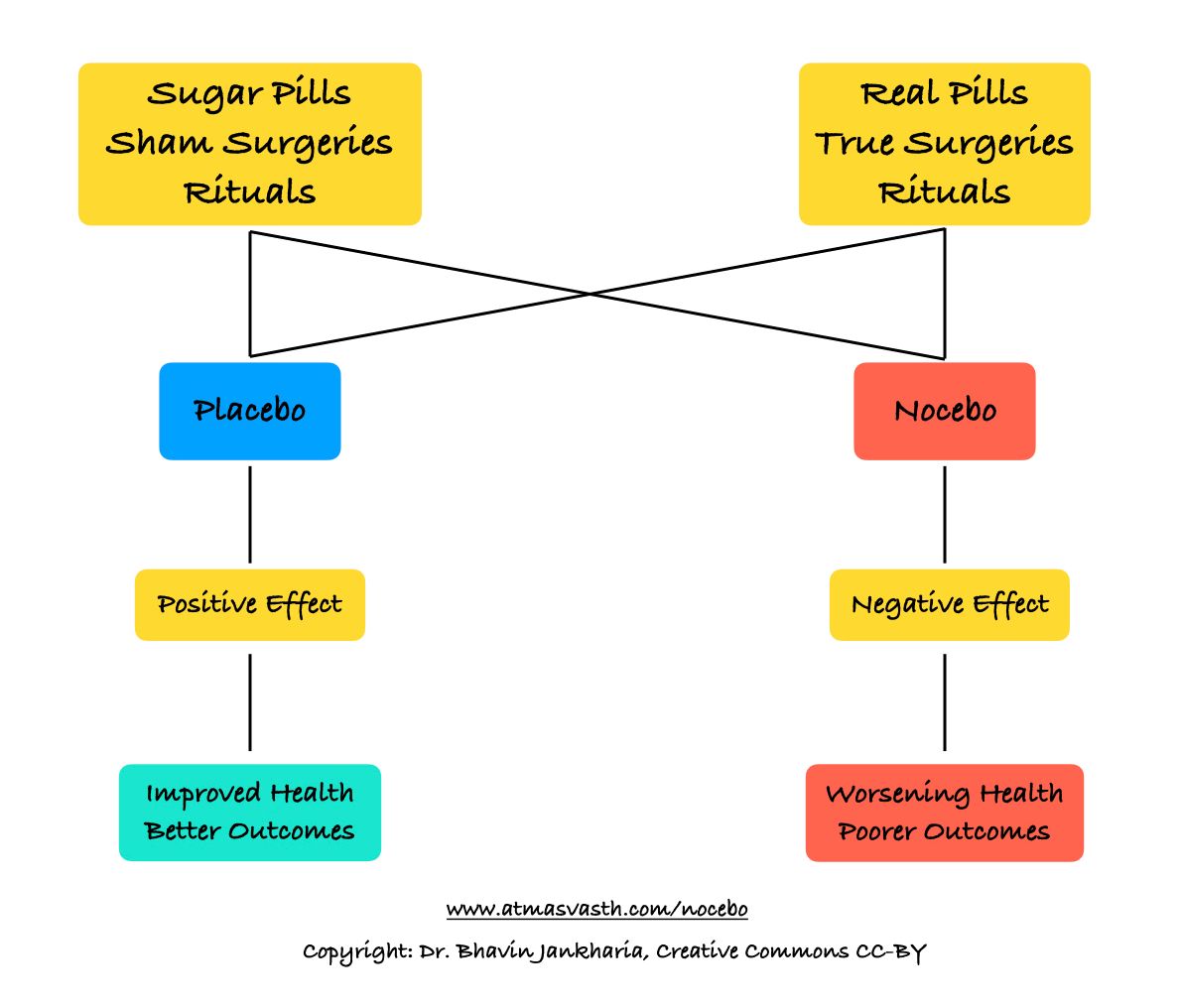
Last Sunday's Post
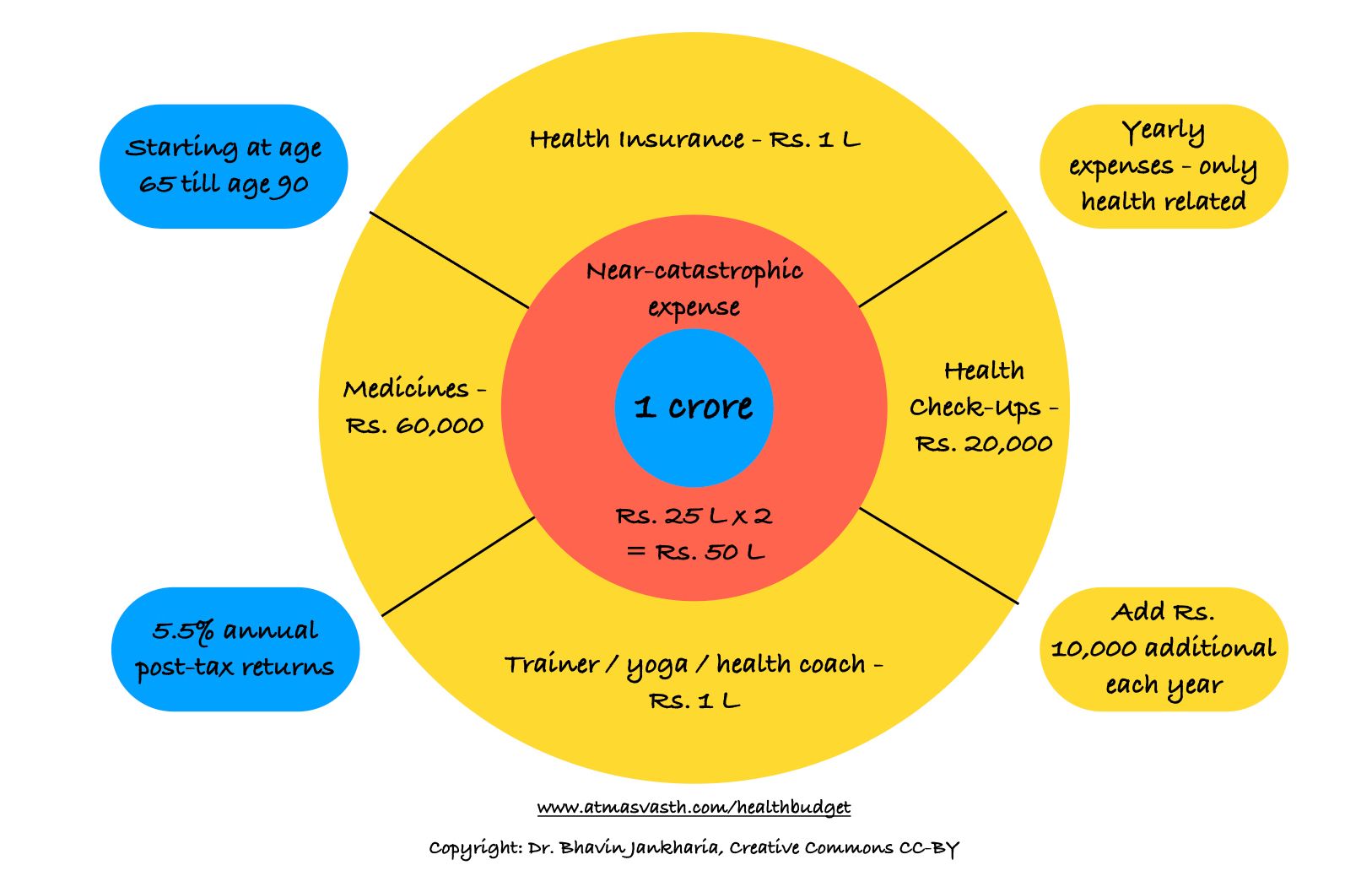
Essential Reading
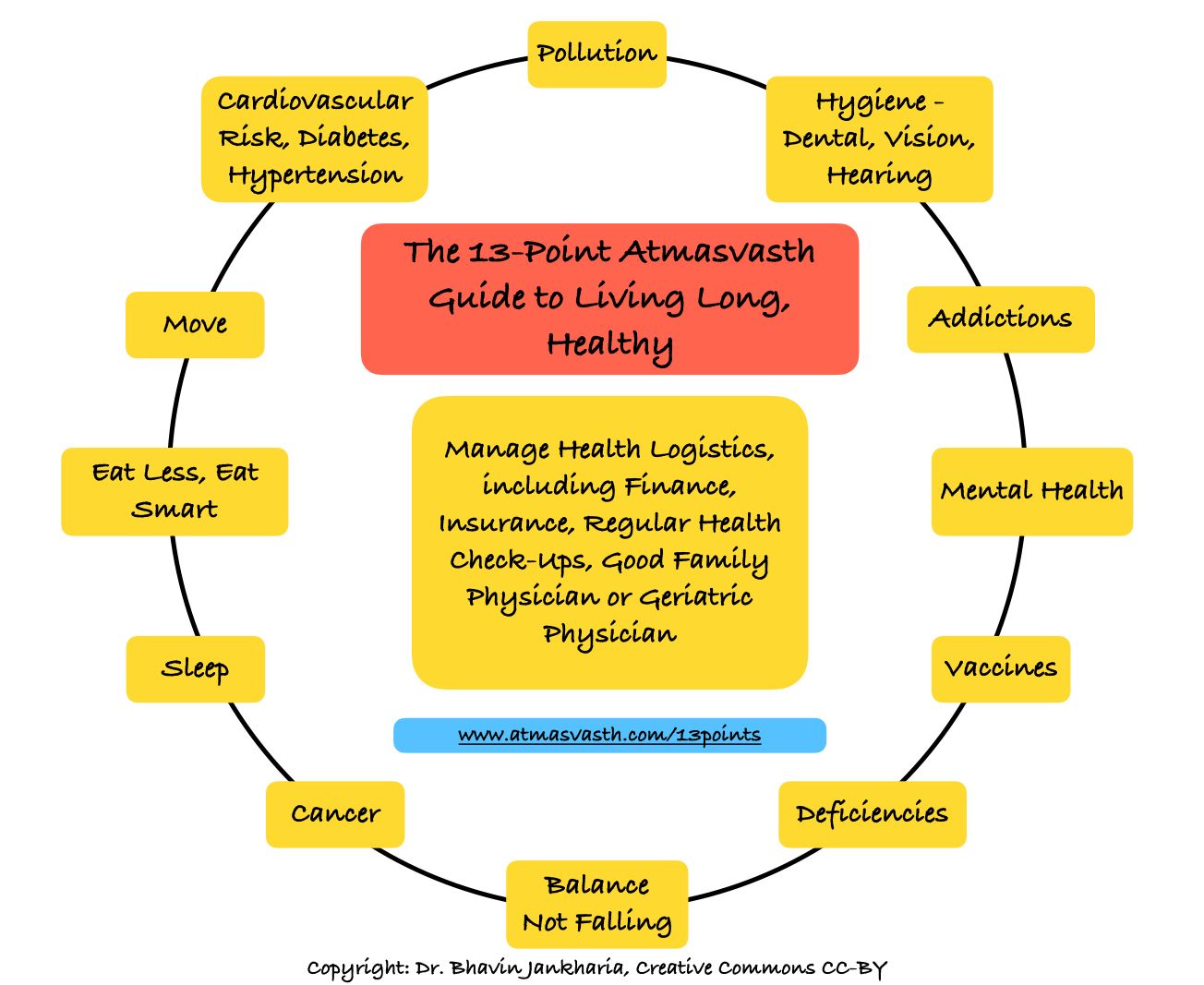
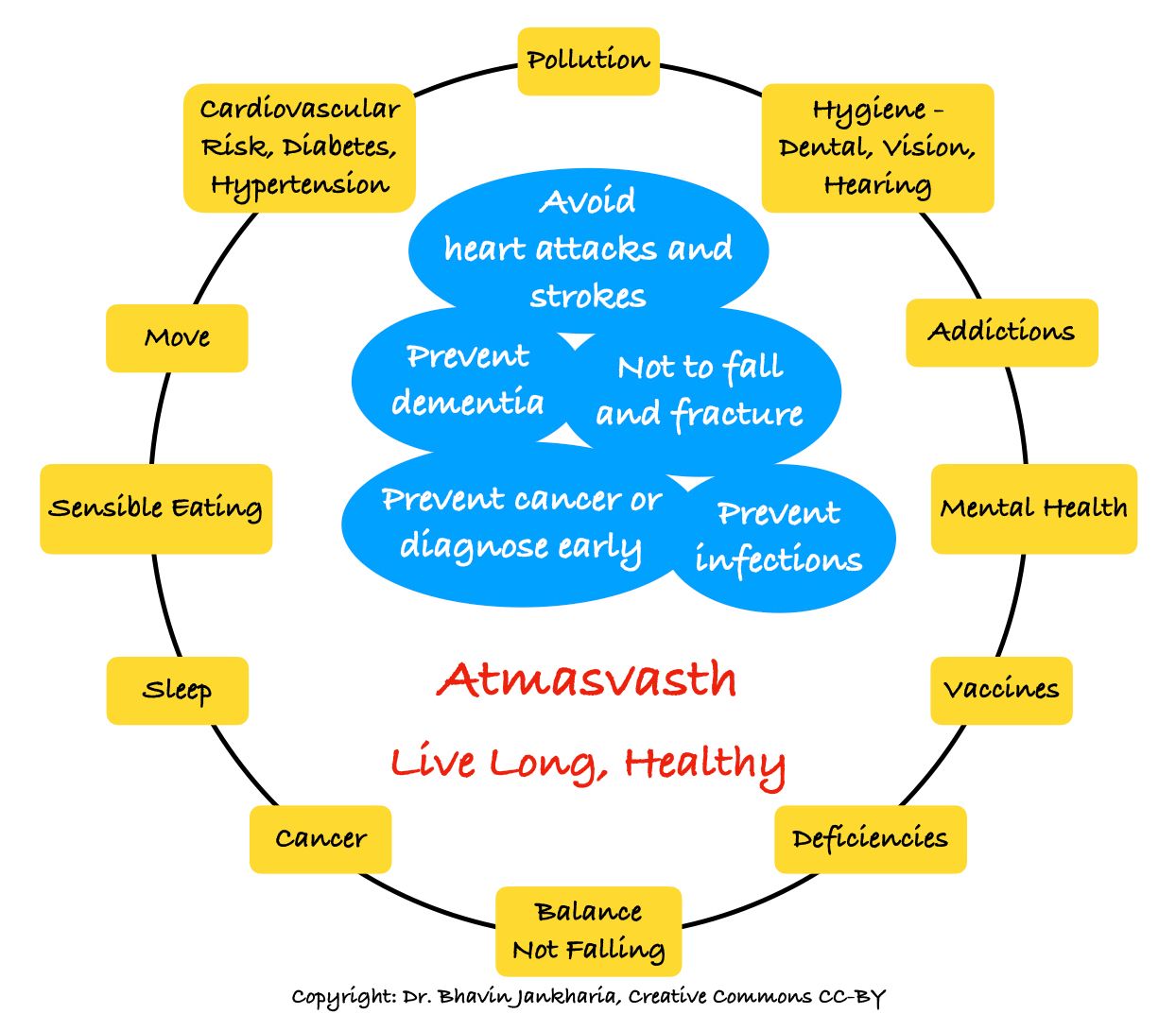
Please see the Archives for the rest of the posts
Footnotes
1. Yu J, Thout SR, Li Q, Tian M, Marklund M, Arnott C, Huffman MD, Praveen D, Johnson C, Huang L, Pettigrew S, Neal B, Wu JHY. Effects of a reduced-sodium added-potassium salt substitute on blood pressure in rural Indian hypertensive patients: a randomized, double-blind, controlled trial. Am J Clin Nutr. 2021 Jul 1;114(1):185-193. doi: 10.1093/ajcn/nqab054. PMID: 33782684.
2. Neal B, Wu Y, Feng X, Zhang R, Zhang Y, Shi J, Zhang J, Tian M, Huang L, Li Z, Yu Y, Zhao Y, Zhou B, Sun J, Liu Y, Yin X, Hao Z, Yu J, Li KC, Zhang X, Duan P, Wang F, Ma B, Shi W, Di Tanna GL, Stepien S, Shan S, Pearson SA, Li N, Yan LL, Labarthe D, Elliott P. Effect of Salt Substitution on Cardiovascular Events and Death. N Engl J Med. 2021 Sep 16;385(12):1067-1077. doi: 10.1056/NEJMoa2105675. Epub 2021 Aug 29. PMID: 34459569.
3. Cook NR, He FJ, MacGregor GA, Graudal N. Sodium and health-concordance and controversy. BMJ. 2020 Jun 26;369:m2440. doi: 10.1136/bmj.m2440. Erratum in: BMJ. 2020 Jun 29;369:m2608. He, J [corrected to He, Feng J]. PMID: 32591335; PMCID: PMC7318881.
Atmasvasth Newsletter
Join the newsletter to receive the latest updates in your inbox.



